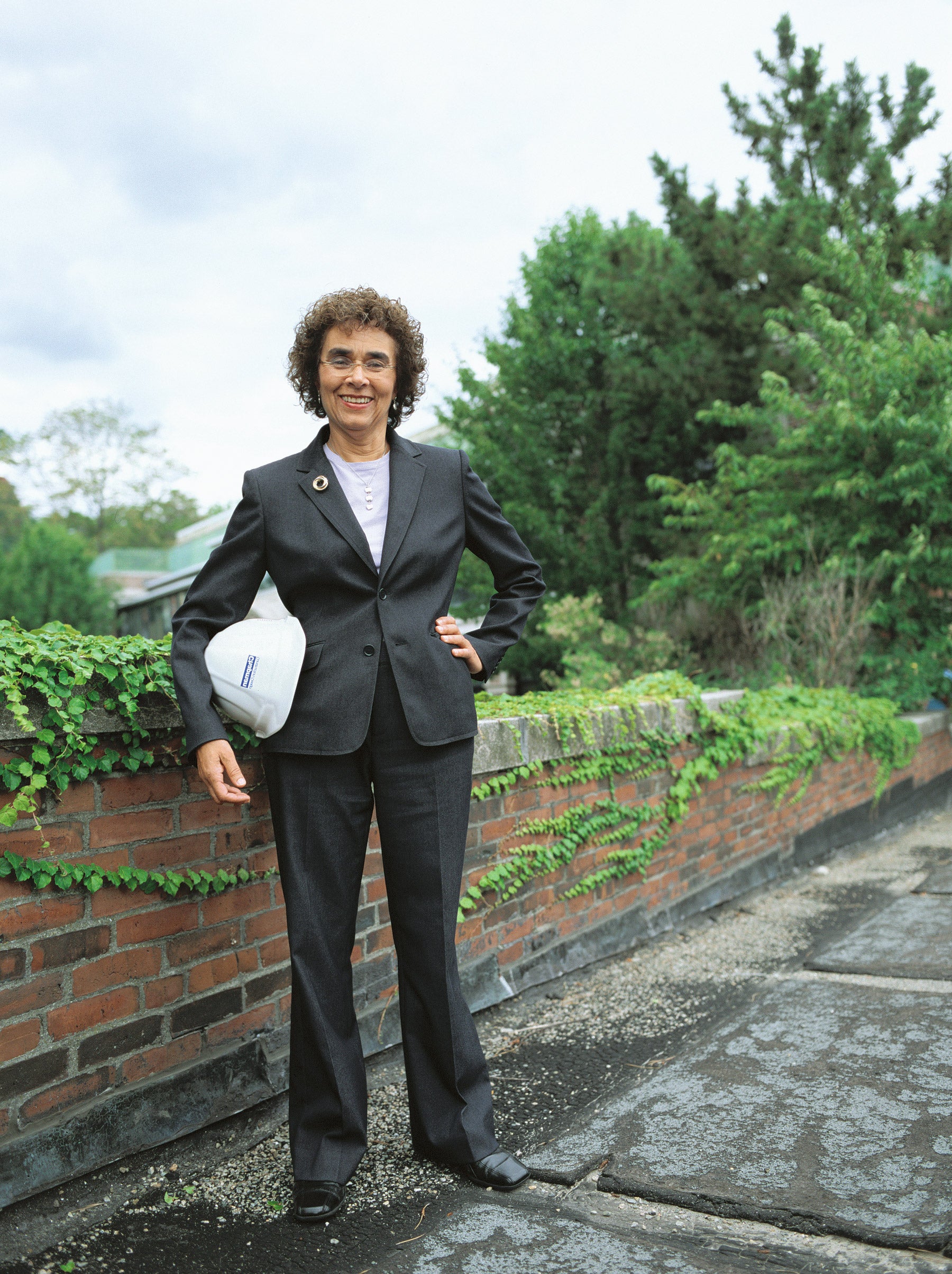Ruth Ellen Fitch ’83 leads a community center blocks away from where she grew up
A hard hat sits on a bookshelf in her office. It’s a requirement for visiting the construction site across from the Dimock Community Health Center, but the prop fits Ruth Ellen Fitch ’83, the center’s president and CEO, in more ways than one. After only a year at Dimock, Fitch has plowed through challenges with her no-nonsense, hard-driving style.
“I am a good delegator, and I am also good at holding people accountable,” Fitch said. “It’s ingrained in me–don’t want to waste time, want to get things done. Time is money.”
Fitch took the helm at Dimock–a health and human services center for Boston’s inner city–after more than 20 years in private law practice. She’s had plenty of experience in leadership positions: She specialized in municipal finance at Palmer & Dodge and in 1991 became the firm’s first African-American woman partner.
Fitch didn’t wait long to initiate change at Dimock. Originally founded in 1876 as a hospital for women and children, Dimock is now a community center with a rehabilitation clinic, transitional housing, Head Start programs and AIDS care. As CEO, she has overseen renovations of the center’s halfway house and pushed to modernize its services.
After only a few months on the job, she concluded that Dimock’s job training program needed to be cut in order to free up resources for more essential programs. “It was sad because it was work that Dimock had been doing for about 20 years,” she said. “But it just wasn’t adding to our core mission.”
Fitch has also learned that being president doesn’t just require making the right decision, but proposing it in a manner suited to the institution.
“The main thing I’ve found that I have to do is really soften my lawyer style,” she said. “As lawyers, working with each other, we get used to interacting that way and expect it, [but] in an organization that’s not used to that kind of a style … it can be perceived as a very confrontational and off-putting style.”
While she credits HLS with refining her lawyerly instincts, her determination predated law school. Fitch grew up in Boston’s Roxbury neighborhood, only several blocks from Dimock’s campus–an area that was known for racial tensions and crime in the 1960s and 1970s. She studied economics at Barnard College but did not decide until 15 years later to pursue a J.D.
By that time, she had worked as an administrator in the Brookline Public Schools and taught literature at the University of Massachusetts Boston. Enrolling in HLS in 1980, Fitch not only had the life experience of a mature professional, she also had a husband and two children, ages 12 and 14.
These extra responsibilities and life experiences helped her avoid a problem she noticed among some younger classmates. “I saw what I think was ‘drift’ in law students,” she said. “They were there because it was another way to fill up three years.”
Fitch said her children in particular kept her focused on her studies. “They thought it was really great that I was back in school–had to take a lunch, had to do homework. They wanted to see my report card, and I drew the line there,” she said.
Throughout the swerves in her career, Fitch has followed a single mantra: “One seizes opportunities and then maximizes them for the next opportunity.” And the walls of her Dimock office show the legacy of that mantra: They are decorated with plaques honoring her leadership roles in Boston, a scarf commemorating her position on the board of trustees of Roxbury Community College, a photo of HLS’s Celebration of Black Alumni in 2000 (which she attended) and, of course, the hard hat.
“I’m not sure I ever drifted, frankly,” she said. “I had a lot of responsibilities, so you just do what you’ve got to do.”
